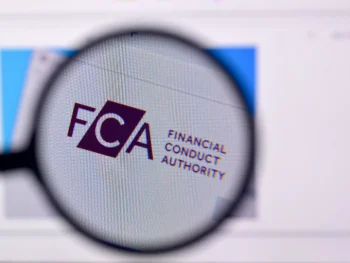Sinead Campbell from Flat Living Insurance discusses the changes that have come about in ground rent and leasehold.
The leasehold sector has been under close scrutiny since 2017, with a focus on protecting leaseholders from inflated costs and improving their powers of redress against freeholders.
A key element of the discussion has been the restriction of ground rents. A multitude of consultations, guideline updates and legislative changes have now culminated in an effective ban on ground rents for news leaseholders in the UK.
Here we’ll be discussing how the changes have come about, what it means for prospective leaseholders, and why current leaseholders can hold out hope.
What is Ground Rent?
Buying a leasehold flat is not simple. You are effectively buying a lease; the right to live within a flat for the length of your lease. What you’re not buying, is the land that home is built on (as is the case when buying freehold).
The land is owned by a freeholder (otherwise known as the landlord). Until recently, freeholders would charge Ground Rent to all of their leaseholders. This is a sum paid to the freeholder to ‘rent’ the land that the building stands on.
The average ground rent for a leasehold property in the UK is around £300 per year, but can rise to £1000 in some places. This not only increases the monthly cost of a owning a leasehold property, but impacts the price of lease extensions.
What’s Being Done?
Government efforts began in July of 2017. They ran a consultation entitled: “Tackling Unfair Practises in the Leasehold Market”, which concluded in December 2017.
The consultation prompted discussion around “a range of measures to tackle unfair and unreasonable abuses of leasehold; in particular the sale of new leasehold houses and onerous ground rents.”
The consultation concluded with a commitment to restrict ground rents in newly established leases to a peppercorn (meaning zero financial value). Of course, this wasn’t a legal update, just a promise of future action.
In October 2018, the Government announced a follow up consultation: “Implementing Reforms to the Leasehold System”. It concluded in June 2019, detailing the same commitment as its predecessor.
Another consultation in 2022 (“Reforming the Leasehold and Commonhold Systems in England and Wales”) led to the first wave of legislative changes. They came in the form of the Leasehold Reform (Ground Rent) Act 2022.
The act effectively abolished ground rents and reduced fees for lease extensions down to a peppercorn, making good on the Governments previous commitments. The new laws came into effect for most new leases on 30th June 2022, with the Government stating that “the Act will make home ownership fairer and more transparent for millions of future leaseholders…tackling significant ambiguity and unfairness.”
The Act is great news for new leaseholders or those extending their leases (although in that case, leaseholders will still need to make a payment to the freeholder to compensate them for the ground rent they will be missing out on when the current lease is void) but what about those in the midst of long term leases?
What About Existing Leases?
With around 5 million leaseholders in the UK, the question still remains; what about us? Ground rents are a thing of the past for the majority of incoming leaseholders, but those preceding July 2022 have continued to face ground rent bills in line with their current leases.
Thankfully, in December of 2023, the Government launched a consultation called “Modern Leasehold: Restricting Ground Rent for Existing Leases” which closed in January 2024, but has not been summarised as yet.
We eagerly await the conclusion of the consultation with the hope that it will result in further legal changes to reduce the financial burden on all UK leaseholders.
Flat Living Insurance arranges insurance for self-managed customers only, call us on 0333 577 2044 to get a quote for your block today.











 Creating Harmonious Spaces in High-Density Living Environments
Creating Harmonious Spaces in High-Density Living Environments
Leave a Reply